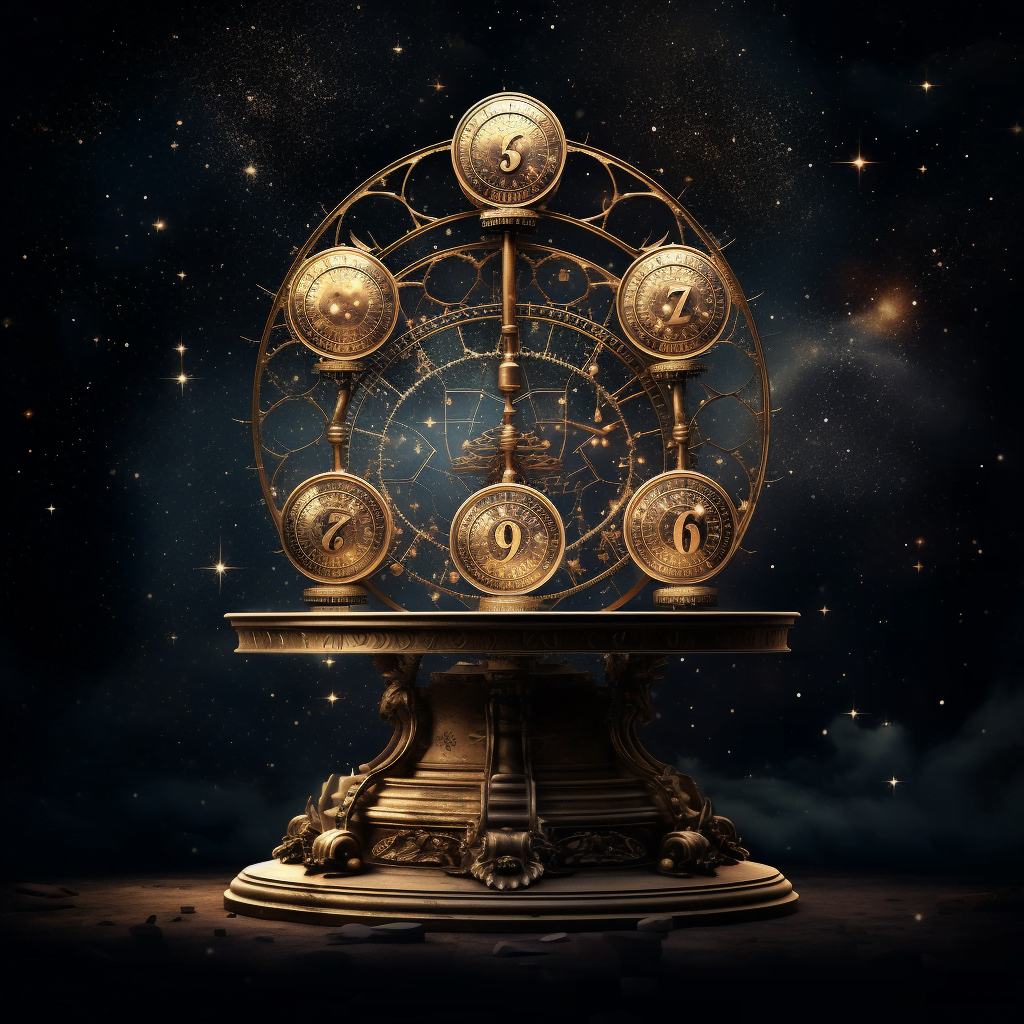You will be guided through an exploration of the psychology behind belief in astrology in this article. We will delve into the reasons why people believe in astrology, examining the factors that contribute to their beliefs. By examining the psychological aspects, you will gain a deeper understanding of why astrology has such a strong hold on certain individuals.

Exploring the Psychology Behind Belief in Astrology
Astrology has fascinated humans for centuries, with individuals looking to the stars in search of guidance and understanding. What is it about this ancient practice that continues to captivate and influence so many? In this article, we will delve into the complex psychology behind belief in astrology, examining the origins, key concepts, and cultural perspectives, as well as the psychological appeal and criticisms associated with this practice.
What is Astrology?
Definition of Astrology
Astrology is the belief that the positioning and movement of celestial bodies, such as the sun, moon, planets, and stars, can have an impact on human behavior and the events that unfold in a person’s life. It is based on the notion that celestial bodies can reveal information about an individual’s personality, relationships, and future.
Key Concepts in Astrology
Astrology encompasses various key concepts that form the foundation of this belief system. One such concept is the zodiac, which divides the sky into twelve equal sections, each representing a specific period of the year and associated with certain personality traits. Another important concept is the idea that an individual’s birth chart, which plots the positions of celestial bodies at the moment of their birth, can provide insights into their life path and potential.

History of Astrology
Origins of Astrology
The origins of astrology date back thousands of years, with ancient civilizations like the Babylonians, Egyptians, and Greeks all developing their own astrological systems. These early astrologers observed the stars and celestial movements, attributing them with symbolic meanings and associating them with various aspects of life.
Development of Astrology through the Ages
Astrology continued to evolve throughout history, with influences from various cultures and individuals. During the Renaissance, astrology experienced a resurgence in popularity, as scholars embraced the combination of astronomy and astrology. However, with the rise of empirical science and the development of the scientific method, astrology began to lose credibility and was relegated to the realm of pseudoscience in the eyes of many.
Astrological Beliefs
Role of Celestial Bodies in Astrology
The core belief in astrology is that celestial bodies exert influence over human life. Each celestial body is associated with different qualities and energies, which are believed to shape an individual’s personality and experiences. For example, the sun is associated with vitality and self-expression, while the moon is linked to emotions and intuition.
Zodiac Signs and Personality Traits
Zodiac signs play a significant role in astrology, as they are believed to correspond to specific personality traits and characteristics. People born under the same zodiac sign are said to share common traits and tendencies, allowing astrologers to make generalizations about their behavior and preferences. However, it is important to note that astrology recognizes the complexity and uniqueness of each individual, and does not imply that everyone born under the same sign will have identical personalities.

Psychological Appeal of Astrology
Need for Guidance and Predictability
Human beings have an inherent need for guidance and predictability in their lives. Astrology offers a sense of structure and meaning by providing explanations for why certain events occur and offering predictions about the future. This appeal is especially strong in times of uncertainty or during periods of significant life transitions, such as career changes or relationship decisions.
Search for Meaning and Purpose
Astrology offers individuals a framework for understanding their place in the world and exploring their purpose in life. By examining their birth charts and zodiac signs, individuals can gain insight into their strengths, weaknesses, and potential life paths. This search for meaning and self-discovery is a fundamental aspect of human psychology, and astrology provides a narrative that resonates with this innate quest.
Confirmation Bias and Astrology
Tendency to Seek Confirmation for Beliefs
Confirmation bias is a well-known cognitive bias that affects how individuals process information. It refers to the tendency to actively seek out, interpret, and remember information that supports one’s pre-existing beliefs. In the context of astrology, individuals may selectively focus on and remember instances where astrological predictions or personality traits align with their own experiences, reinforcing their belief in its accuracy.
Selective Attention and Interpretation in Astrology
Astrology allows for a significant degree of interpretation, as astrologers analyze and interpret celestial positions and movements to make predictions and assessments. However, this subjectivity opens the door for individuals to selectively emphasize or interpret astrological readings in a way that confirms their preconceived notions. This selective attention and interpretation contribute to the perpetuation of astrology’s appeal and believability.
Astrology and Self-Perception
Astrology’s Influence on Self-Identity
Astrology can strongly influence self-identity, as individuals may incorporate their zodiac sign and astrological readings into their perception of themselves. The personality traits associated with their sign can become self-fulfilling prophecies, shaping their behavior and attitudes. This phenomenon is known as the “Barnum effect,” where individuals believe that vague and general statements about personality specifically apply to them.
Use of Astrology for Self-Reflection and Self-Improvement
Many people turn to astrology as a tool for self-reflection and self-improvement. By examining their birth charts and exploring the influence of different celestial bodies, individuals seek to gain self-awareness and make positive changes in their lives. Astrology offers a language and framework through which individuals can better understand their own emotions, behaviors, and patterns.
Social Factors Influencing Belief in Astrology
Popularity and Peer Influence
The popularity of astrology plays a significant role in shaping individual belief systems. When astrology becomes widely accepted or trendy, it can create a social environment that fosters belief and encourages individuals to explore this practice. Peer influence, particularly among close friends or influential figures in society, can also contribute to the adoption of astrological beliefs.
Media and Celebrities’ Endorsements
The media, including magazines, newspapers, and online platforms, often feature astrology columns or horoscopes, exposing individuals to astrological beliefs. Furthermore, endorsements and discussions by celebrities can greatly influence public perception and acceptance of astrology. When people admire and trust celebrity figures, their endorsement of astrology can carry significant weight in shaping beliefs.
Cultural Perspectives on Astrology
Astrology in Different Cultures
Astrology is not limited to a specific culture or region. It has been practiced and adapted by various cultures throughout history, each with its own unique interpretations and traditions. From Chinese astrology to Vedic astrology in India, different cultures have integrated astrology into their belief systems and daily lives, highlighting the universality and enduring fascination with this practice.
Astrological Practices and Traditions
Different cultures have developed specific practices and traditions within astrology. For example, Chinese astrology includes animal zodiac signs that rotate on a twelve-year cycle, while Vedic astrology places a strong emphasis on the positions of planets at the time of one’s birth. These cultural variations add depth and richness to the study of astrology, showcasing the diverse perspectives and applications of this ancient art.
Criticism of Astrology
Scientific Rejection of Astrology
Astrology faces strong opposition from the scientific community, which views it as a pseudoscience lacking empirical evidence. Scientists argue that the predictions and correlations made by astrologers lack a scientific basis and can be explained by other factors, such as cognitive biases and self-fulfilling prophecies. The lack of repeatability and predictability in astrological predictions further adds to the skepticism surrounding this practice.
Alternative Explanations for Astrological Phenomena
Critics of astrology propose alternative explanations for the perceived accuracy and influence of astrology. For example, the “Forer effect” suggests that vague and positive statements can be interpreted by individuals as highly accurate descriptions of themselves, despite being applicable to a wide range of people. Psychological factors, such as the power of suggestion and subjective validation, may also contribute to the belief in astrology.
Debunking Astrology Myths
Misconceptions and Misinterpretations
Astrology is often misunderstood and misrepresented, leading to misconceptions about its practices and principles. It is important to distinguish between popularized versions of astrology, such as horoscopes in newspapers, and the more intricate and personalized analyses performed by professional astrologers. Misinterpretation of astrological principles can lead to inaccurate assumptions and judgments about the validity of astrology as a whole.
Examining the Lack of Empirical Evidence
A key criticism of astrology is the lack of robust empirical evidence supporting its claims. Scientific studies that have attempted to validate astrological predictions have generally failed to produce statistically significant results. The absence of reliable evidence poses a challenge to astrology’s credibility, as it relies heavily on subjective interpretations and anecdotal experiences.
Astrology and Personal Choices
Influence of Astrology on Relationships
Astrology often plays a role in how individuals approach relationships and compatibility. Compatibility charts and synastry analysis, which examines the compatibility between two individuals’ birth charts, are popular tools used to determine the potential success or challenges in a romantic partnership. However, it is crucial to approach astrological insights with a critical eye, recognizing the complexities of human relationships beyond astrological predictions.
Career and Life Decisions
Astrology can also influence career choices and major life decisions. Some individuals seek astrological guidance to determine the most favorable time to start a business, make a career change, or pursue a particular path. However, it is important to consider astrology as just one factor among many and to make decisions based on careful consideration of various factors, including skills, interests, and opportunities.
Ethical Considerations in Astrology
Responsibility of Astrologers
Astrologers have a responsibility to be transparent and ethical in their practice. They should provide accurate information about the limitations and subjectivity of astrology, ensuring that individuals do not place undue reliance on astrological readings. Professional astrologers should also avoid making sweeping generalizations or offering fatalistic predictions that could potentially harm individuals’ mental well-being.
Potential Vulnerabilities and Exploitation
Belief in astrology can create vulnerabilities that may be exploited by unscrupulous individuals claiming to have supernatural abilities. People seeking guidance and direction in their lives may be particularly susceptible to manipulation and fraud. It is crucial for individuals to exercise skepticism, critically evaluate astrological claims, and be cautious of potential scams or exploitative practices.
Effects of Belief in Astrology
Impact on Mental Well-being
The belief in astrology can have both positive and negative effects on mental well-being. On one hand, astrology provides a source of comfort and reassurance, offering a sense of control and understanding in uncertain times. On the other hand, excessive reliance on astrology and its predictions can lead to anxiety, dependency, and a lack of agency, as individuals may feel powerless to shape their own lives.
Effects on Decision-Making and Behavior
Astrology can influence decision-making and behavior, as individuals may align their choices and actions with astrological advice or predictions. This can be seen in simple daily tasks, such as choosing what to wear or where to go, as well as more significant life decisions. It is important for individuals to strike a balance between considering astrological insights and utilizing critical thinking, personal values, and objective information.
Conclusion
Exploring the psychology behind belief in astrology reveals the multifaceted nature of this ancient practice. Whether driven by a need for guidance, a search for meaning, or the influence of social factors, astrology continues to captivate and influence a significant number of individuals. However, it is important to recognize the limitations and subjectivity of astrology, and to approach it with a critical and balanced perspective. By understanding the complex psychology behind belief in astrology, we gain insight into the intricate interplay between human nature, culture, and our relentless pursuit of understanding the world around us.


